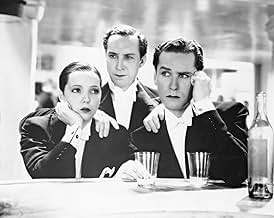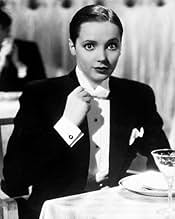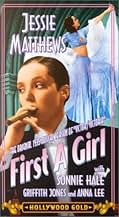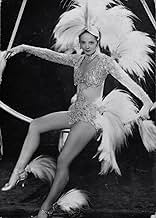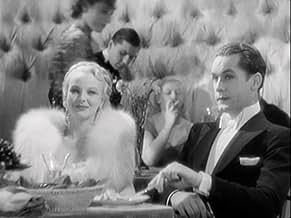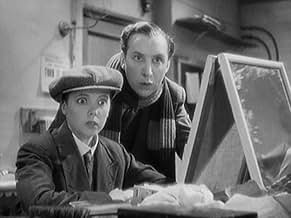This film is an English-language version of the Victor/Victoria female impersonator story, based on the original film done in Germany, and later re-created by Julie Andrews in 1982. Impersonation seems to be a recurring theme in some of Matthews's films.
Although Matthews was nicknamed "The Dancing Divinity", she does a bit more singing than dancing in this film, not surprising since she was reportedly a popular and prolific recording artist in England. In contrast to some of the dancing ladies of 1930s films, Matthews had a singing voice and didn't need dubbing.
Nevertheless, the dancing she does in this film admirably shows off her abilities. Although she was a proficient tap dancer, here she does not perform any rhythmic tap dances as she did in her other films. The tap dancing she does is more of a soft-shoe performed with co-star, Sonnie Hale, which turns into a nicely done ballroom-style dance, which is part of a large production number.
There is another big production number done with the typical chorus girls and a singer, in which Matthews does not participate. The other big production number features Matthews, again with chorus girls, in which she sings and then performs a freestyle type of dance.
The songs created for this film aren't particularly memorable, and none advanced to the category of "standard", although they are serviceable for the film. The composers may not have household names, but were certainly prolific in that day and you would recognize many of the other songs they have composed, some of which are standards.
It's interesting to see co-star Anna Lee in her early career, somewhat before her emigration to Hollywood, with her hair bleached to platinum blonde in the Jean Harlow style of the 1930s.
This film is interesting to watch, if you'd like to examine the work of Jessie Matthews, or if you just like musicals of the 1930s. This film can be obtained on VHS.

